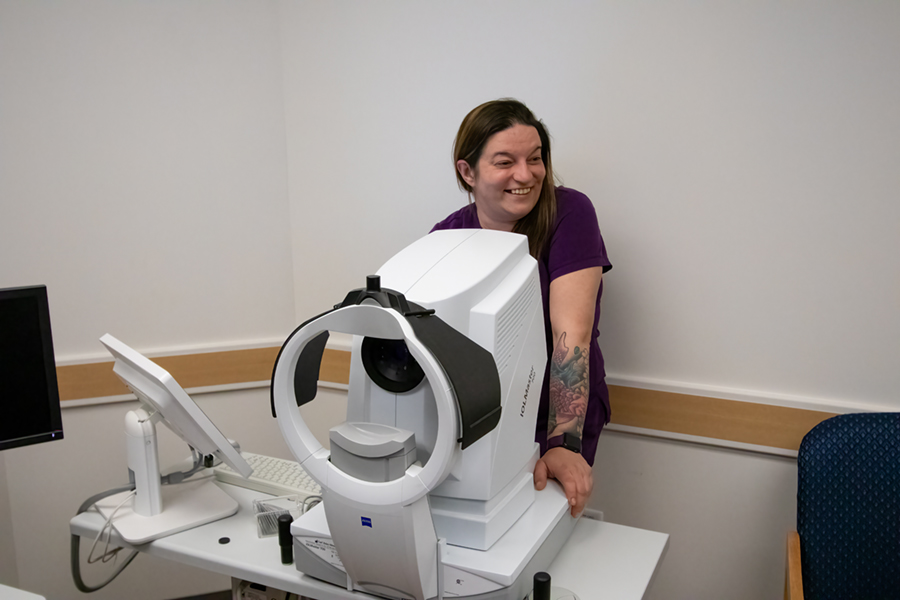Retina Services
What is the Retina?
The retina is a thin layer of tissue that lines the back of your eye. It’s often compared to the film in a camera because it captures the images you see and sends them to your brain via the optic nerve.
Function of the Retina
The primary function of the retina is to convert light into neural signals that the brain can interpret. Light enters your eye and passes through the cornea and lens before reaching the retina. The photoreceptor cells in the retina then detect the light and send signals to the brain, which interprets them as the images you see.
Common Retinal Conditions
- Macular Degeneration: This condition affects the macula, the central part of the retina responsible for detailed vision. It can cause blurred or distorted vision, making reading or recognizing faces difficult.
- Retinal Detachment occurs when the retina pulls away from the back of the eye, disrupting blood flow and causing vision loss. Symptoms include flashes of light, floaters, and a curtain-like shadow in your field of vision.
- Diabetic Retinopathy: People with diabetes are at risk of developing this condition, which is caused by damage to the blood vessels in the retina. It can lead to vision loss if left untreated.
- Retinitis Pigmentosa: This is a group of genetic disorders that cause progressive vision loss due to damage to the photoreceptor cells in the retina.
Taking Care of Your Retina

While some retinal conditions are beyond your control, there are steps you can take to protect your vision:
- Regular Eye Exams: Schedule regular eye exams with your eye care professional to detect retinal problems early.
- Healthy Lifestyle: Maintain a healthy lifestyle by eating a balanced diet, exercising regularly, and avoiding smoking.
- Protective Eyewear: Wear sunglasses that block UV rays to protect your eyes from harmful sun exposure.
- Manage Underlying Conditions: If you have diabetes or other health conditions affecting your retina, work with your healthcare provider to manage them effectively.
Conclusion
Your retina plays a crucial role in your vision, allowing you to see and experience the world around you. By understanding its structure and function and how to care for it, you can help preserve your vision for years to come. If you have any concerns about your retina or vision, don’t hesitate to schedule an appointment.




